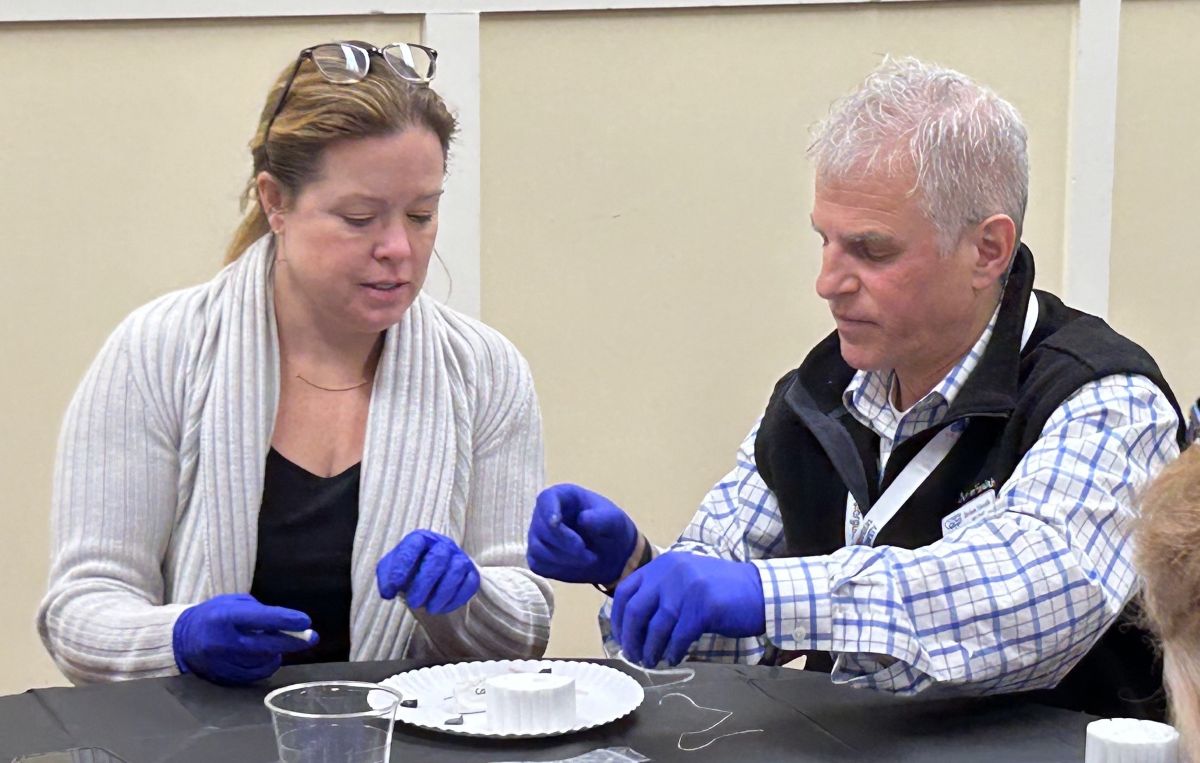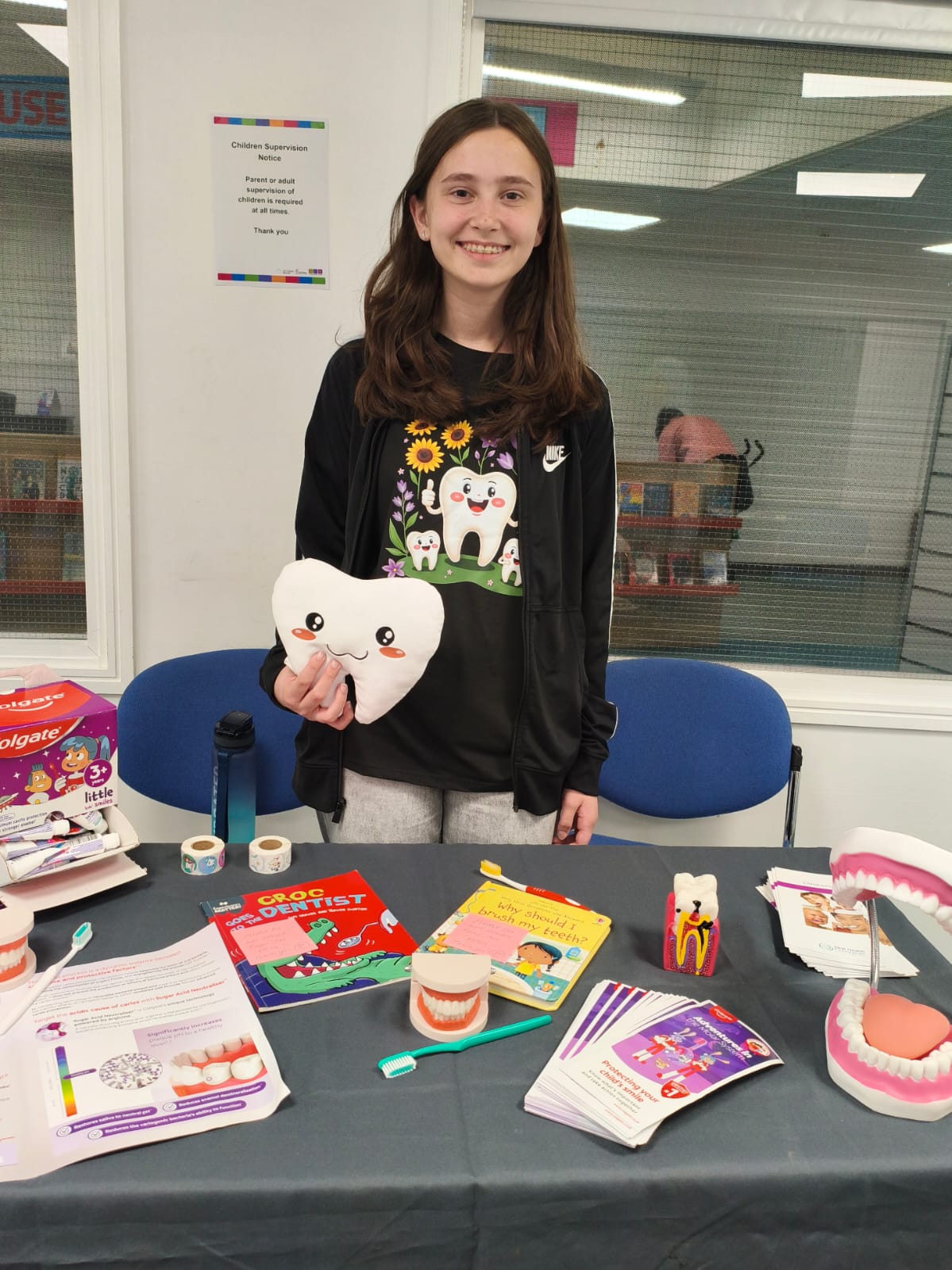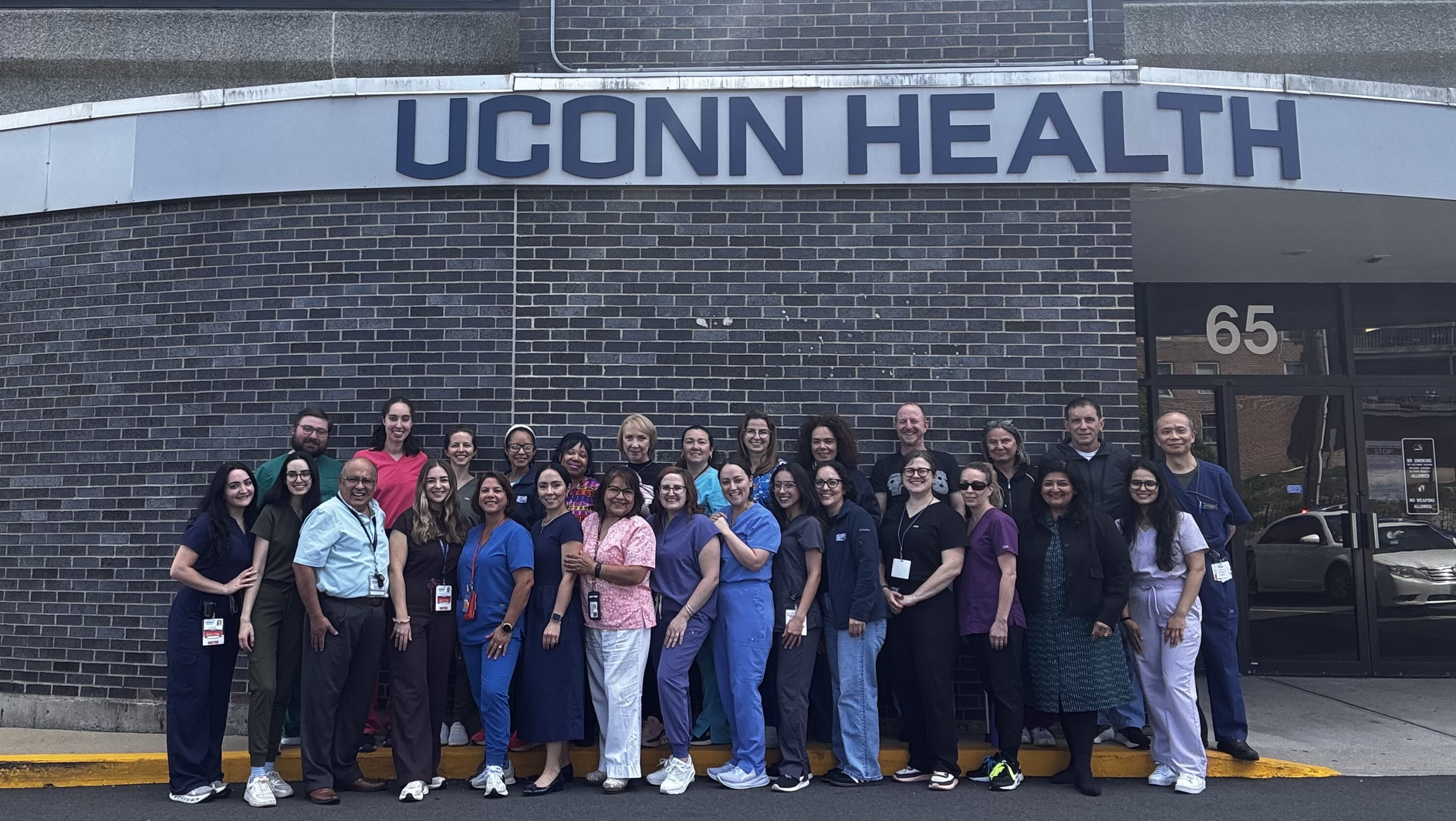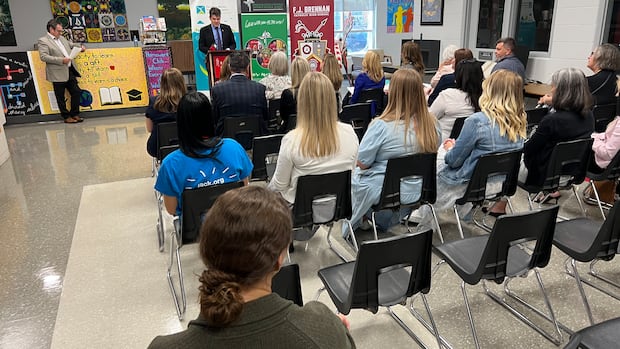Two more high schools will be getting new on-site mental health services for students after the success of a pilot project launched at F.J. Brennan Catholic High School last year, called the Youth Mobile Clinic.
Brianne Trudell, principal of F.J. Brennan, called the clinic that ran for four weeks late last year at the school “an absolute game changer.”
A pilot program that puts nurses and social workers inside schools is expanding to two more high schools this fall to serve students where they are. Jacob Barker explains.
The clinic placed social workers and registered practical nurses in the school so students could drop in for mental health support when needed, without an appointment.
“Every single day, we saw students really take to the support. It immediately bridged the gap between school supports that we can offer and the community,” said Trudell.
This September, the program will be available at Assumption College Catholic High School and Cardinal Carter Catholic Secondary School in addition to F.J. Brennan.
The program is a partnership between the Canadian Mental Health Association in Windsor-Essex, the Windsor-Essex County Health Unit, Hôtel-Dieu Grace Healthcare, and the Windsor-Essex Catholic District School Board.
It is funded by Ontario Health’s Locally Driven Collaborative Projects program fund, through the local CMHA branch.
Data shows over 50 per cent of students experiencing psychological distress
The Youth Mobile Clinic was a response to troubling data released by the Centre for Addiction and Mental Health, said Nicole Sbrocca, CEO of the CHMA in Windsor-Essex.
A 2023 report shows that out of 10,000 students between Grade 7 and Grade 12 across the province, 51 per cent showed signs of psychological distress.
“And that figure has doubled in the last decade,” said Sbrocca.
“Additionally, and arguably more concerning, is that 19 per cent of those students reported engaging in self-harm and 18 per cent had suicidal ideation.”
Students dealing with depression, anxiety, peer relationships
The complexities of mental health needs in students have increased over time, says Julia Valeriani, a social worker who has been on site for the pilot program.
She said when students bring up suicidal ideation and self-harm, there is immediate crisis support.
Depending on student needs, staff on site can either provide care at the moment, follow up with appointments, or refer students to other agencies.
Valeriani says students are dealing with a wide range of issues, including depression, anxiety, peer relationships, complex family dynamics at home and self-esteem.
But the good news is that they are open to support.
“I think maybe what we’re surprised about is that they’re being open to actually coming to see us, because we were really concerned about stigma,” said Valeriani.
She said the program has also helped include parents in conversations.
“Sometimes parents don’t know where to turn. And so we can offer that little bit of support and bring them into an environment that they’re already comfortable with, instead of sending them out to another mental health agency,” said Valeriani.
Valeriani says the staff will balance their time between the three schools each week.
Two more years of funding
Sbrocca said the Youth Mobile Clinic received nearly $1 million a year and has two more years of funding left.
In that time, she hopes the program continues to grow and secure permanent funding.
link







More Stories
HEALTH IN THE KNOW: Free Training Empowers Students to Help in Mental Health Crisis
BU Offers Free Confidential Mental Health Screenings for World Mental Health Day Thursday | BU Today
The impact of physical exercise on college students’ mental health through emotion regulation and self-efficacy